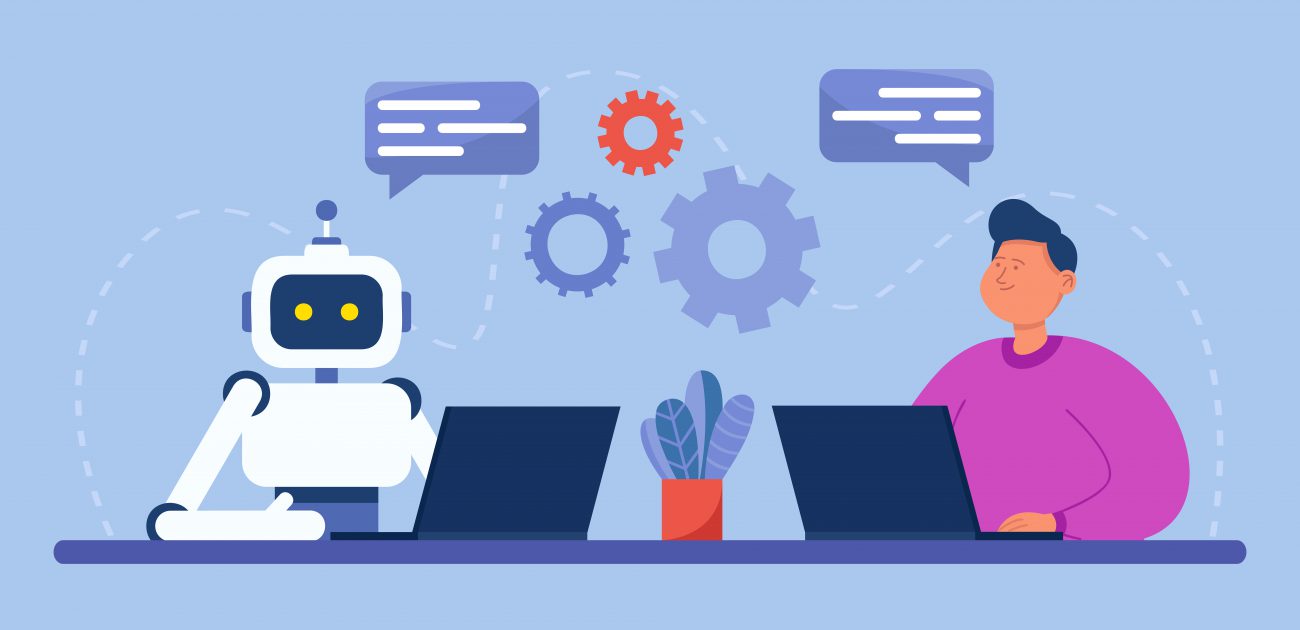
The Future of Sales Calls: Harnessing AI for Smarter Telemarketing Strategies
May 14, 2024
Beyond the Hype: Practical Applications of AI in Marketing
May 15, 2024
In the ever-evolving world of digital marketing, staying ahead of the curve means embracing cutting-edge technologies that transform how businesses connect with their audiences. As we step into 2024, one technology stands out as a game-changer in the marketing arena: Artificial Intelligence (AI). AI is no longer a futuristic concept but a present-day reality, reshaping the landscape of marketing campaigns and revolutionizing customer engagement.
AI-powered marketing campaigns are now at the forefront of the industry, offering unprecedented opportunities for personalization, efficiency, and data-driven decision-making. Imagine a world where your marketing efforts are not just reactive but predictive, where your campaigns adapt in real-time to the needs and behaviors of your audience, and where every interaction feels tailored to the individual. This is the power of AI in marketing.
Consider Spotify’s “Discover Weekly” playlists, which curate personalized music recommendations for millions of users based on their listening habits. Or think about Sephora’s Virtual Artist, an AI-driven tool that allows customers to try on makeup virtually, providing product recommendations based on their unique facial features. These are just a couple of examples of how AI is transforming marketing campaigns, creating more engaging, personalized experiences for consumers.
As businesses harness the power of AI, they can analyze vast amounts of data to uncover insights that were previously unimaginable. This data-driven approach enables marketers to craft campaigns that are not only highly targeted but also incredibly effective. By leveraging AI, businesses can predict customer behavior, personalize interactions, optimize campaigns in real-time, and ultimately, drive higher conversion rates and customer loyalty.
However, the journey to successful AI-powered marketing is not without its challenges. Businesses must navigate complex issues such as data privacy, integration of AI systems with existing infrastructure, and maintaining a balance between automation and the human touch. It’s essential to adopt best practices that ensure ethical data use, foster personalization, and enhance customer support.
As we move into 2024, businesses are leveraging AI to craft highly targeted marketing strategies that resonate with consumers on a deeper level. This whitepaper explores notable examples of AI-powered marketing campaigns and outlines best practices to maximize their effectiveness.

Real-World Examples of AI-Powered Marketing Campaigns
Several leading brands are already harnessing the power of AI to create impactful marketing campaigns. Here are a few notable examples:
Spotify’s Discover Weekly: Spotify has leveraged AI to revolutionize how users discover music. The platform’s “Discover Weekly” feature curates personalized playlists for millions of users based on their listening habits and preferences. By analyzing data such as song preferences, listening history, and user interactions, Spotify’s AI algorithms generate recommendations that feel uniquely tailored to each user. This personalized approach has significantly enhanced user engagement and retention, making “Discover Weekly” a standout feature.
Sephora’s Virtual Artist: Sephora’s Virtual Artist app is a prime example of AI transforming the retail experience. The app uses AI-powered facial recognition technology to allow users to virtually try on makeup. By analyzing facial features and understanding user preferences, the app provides personalized product recommendations. This innovative tool not only enhances the shopping experience but also increases online sales and reduces product returns, demonstrating the effectiveness of AI in creating seamless, personalized customer journeys.
Amazon’s Predictive Recommendations: Amazon is a pioneer in using AI for personalized marketing. The e-commerce giant employs AI algorithms to analyze browsing history, past purchases, and items in the shopping cart to provide predictive product recommendations. This targeted approach has resulted in higher conversion rates and increased average order values. By presenting customers with relevant products at the right time, Amazon has set a high standard for AI-driven personalization in online retail.
Netflix’s Content Recommendations: Netflix’s recommendation engine is another stellar example of AI in action. By analyzing viewing history and preferences, Netflix’s AI algorithms suggest TV shows and movies tailored to individual tastes. This personalized content curation has been instrumental in keeping subscribers engaged and reducing churn. The success of Netflix’s recommendation system highlights the importance of AI in enhancing user satisfaction and loyalty.

Best Practices for AI-Powered Marketing Campaigns
While the benefits of AI in marketing are clear, realizing these benefits requires a strategic approach. Here are some best practices for implementing AI-powered marketing campaigns:
Ethical Data Use: Collecting and using customer data ethically is paramount. Businesses must be transparent about how they collect and use data, ensuring compliance with data privacy regulations such as GDPR and CCPA. Implementing robust security measures to protect customer information is essential for maintaining trust and fostering long-term relationships.
Personalization: Personalization is at the core of AI-powered marketing. By leveraging AI to analyze customer behavior and preferences, businesses can deliver highly personalized content, recommendations, and offers. Segmenting the audience based on detailed AI-driven insights allows for more targeted and relevant marketing messages, increasing the chances of conversion and customer satisfaction.
Real-Time Optimization: AI enables marketers to monitor campaign performance in real time and make data-driven adjustments on the fly. Implementing AI-powered A/B testing can quickly identify and scale the most effective strategies and creatives, ensuring that marketing efforts are always aligned with audience preferences and behaviors. Real-time optimization helps in maximizing the impact of marketing campaigns and improving ROI.
Enhanced Customer Support: AI-powered chatbots can provide instant, 24/7 customer support, resolving queries and issues promptly. These chatbots can handle a wide range of customer interactions, from answering basic questions to providing personalized product recommendations. Additionally, AI can analyze customer interactions and feedback to continuously improve support services and overall customer satisfaction.
AI Training and Integration: For businesses to fully harness the power of AI, investing in AI training and integration is crucial. Providing training for marketing teams to effectively use AI tools and interpret AI-generated insights ensures that the technology is utilized to its full potential. Seamless integration of AI systems with existing marketing platforms is essential for maximizing efficiency and effectiveness.
Creative AI Applications: Exploring innovative uses of AI can set businesses apart in a crowded market. AI can be used to create interactive content, personalized video campaigns, and virtual try-ons, enhancing engagement and creating memorable experiences for customers. Experimenting with AI-generated content and design elements can also bring a new level of creativity and personalization to marketing materials.
Balancing Automation and Human Touch: While AI can automate many aspects of marketing, maintaining a human touch is essential for building genuine connections and rapport with customers. Businesses should aim to use AI to enhance, not replace, human interactions. Combining the efficiency of AI with the empathy and creativity of human marketers can lead to more meaningful and effective campaigns.

Challenges and Considerations
Despite the numerous benefits, businesses must navigate certain challenges when implementing AI-powered marketing campaigns. Data privacy concerns are a major consideration, and businesses must ensure that they handle customer data responsibly and transparently. Integrating AI systems with existing infrastructure can also be complex and requires careful planning and investment. Additionally, businesses must strive to maintain a balance between automation and human touch to build genuine connections with customers.
-
Leverage Customer Data Ethically:
- Collect and use customer data transparently, ensuring compliance with data privacy regulations such as GDPR and CCPA.
- Implement robust security measures to protect customer information and build trust with your audience.
-
Personalize Customer Interactions:
- Use AI to analyze customer behavior and preferences to deliver personalized content, recommendations, and offers.
- Segment your audience based on detailed AI-driven insights to create more targeted and relevant marketing messages.
-
Optimize Campaigns in Real-Time:
- Utilize AI to monitor campaign performance in real-time and make data-driven adjustments to improve outcomes.
- Implement A/B testing powered by AI to quickly identify and scale the most effective strategies and creatives.
-
Enhance Customer Support with AI:
- Integrate AI chatbots to provide instant, 24/7 customer support, answering queries, and resolving issues promptly.
- Use AI to analyze customer interactions and feedback to continuously improve support services and customer satisfaction.
-
Invest in AI Training and Integration:
- Provide training for your marketing team to effectively use AI tools and interpret AI-generated insights.
- Ensure seamless integration of AI systems with existing marketing platforms to maximize efficiency and effectiveness.
-
Focus on Creative AI Applications:
- Explore innovative uses of AI, such as virtual try-ons, interactive content, and personalized video campaigns to stand out in a crowded market.
- Experiment with AI-generated content and design elements to enhance creativity and engagement in your marketing materials.
Conclusion
AI-powered marketing campaigns are setting new benchmarks for personalization, efficiency, and customer engagement in 2024. By leveraging AI technologies, businesses can gain deeper insights into customer behavior, optimize their marketing strategies in real time, and deliver highly personalized experiences that drive loyalty and growth. Adopting best practices for ethical data use, personalization, real-time optimization, and creative AI applications will be key to staying competitive and achieving marketing success in the AI-driven era.
The future of marketing is here, and it is powered by AI. Businesses that embrace this technology will not only stay ahead of the curve but also create more meaningful and impactful connections with their customers. As we continue to explore the possibilities of AI in marketing, one thing is clear: the potential is limitless, and the journey has just begun. Welcome to the exciting world of AI-powered marketing campaigns!


